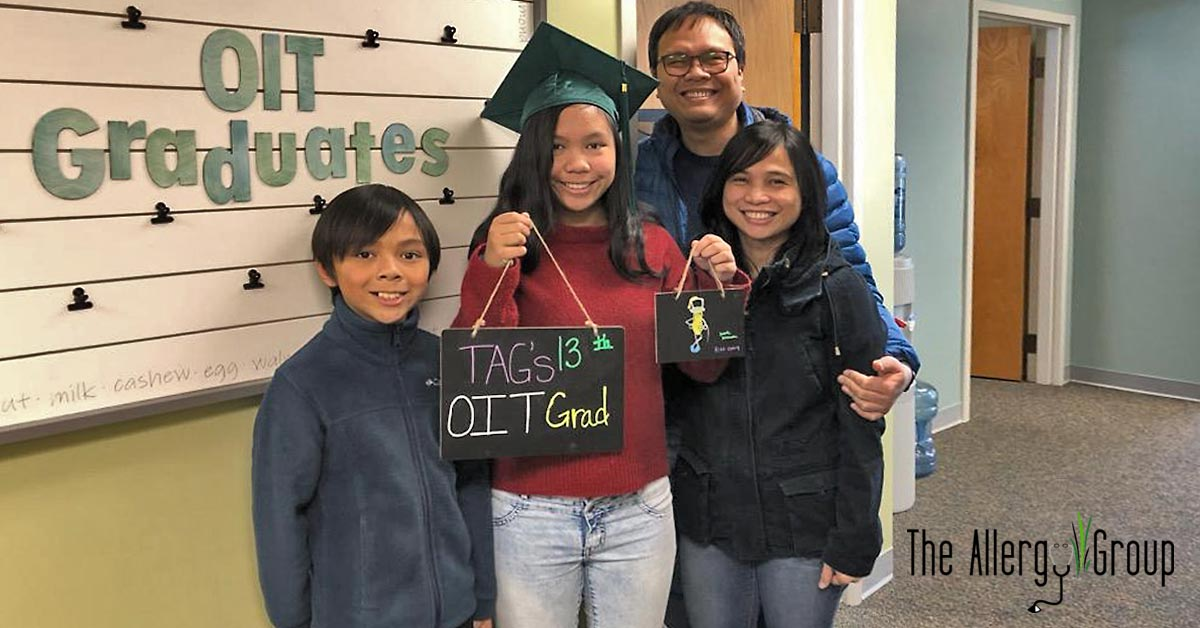
How To Have A Successful OIT Treatment
Allergies to food can bother you throughout your life, and the fear of inadvertent exposure can affect your peace of mind to a large extent. However, with the introduction of Oral immunotherapy (OIT), food allergies can be treated and you can live an appeasing life without any fears.
There can be many questions in your mind regarding OIT. Here we have answered the most commonly asked questions regarding OIT to help you clear your doubts.
What Is The Recommended Age For OIT?
To be a part of the OIT, a child must be capable enough to inform the provider / parent about the onset of any symptoms indicative of an allergic reaction during the desensitization process. This usually corresponds to about 4 to 5 years age, but depending on the individual, your provider may recommend to start even younger. There is no maximum age for starting OIT.
How Long Is The First-day Procedure?
It can last for approximately 4 to 5 hours. Increasing doses of the treatment food are administered at 20- 30-minute intervals by mouth. This is done to assess one’s sensitivity to the food allergen and evaluate the dose to be given in the second visit.
Should I Stop My Allergy Medications Before The Procedure?
No. Patient should continue to take all the routine medications as before and inform the provider about all the medications.
What Happens During The Second Visit?
During the 2nd visit, an updose from the last dose tolerated at the first visit is administered under medical supervision. The second visit may last for about 1.5 to 2 hours. During the next one to two weeks, depending on how frequently the patient chooses to updose, the same amount of treatment food is self-administered at home daily under proper guidelines given by the provider. Oral anti-allergic medication and epinephrine auto-injector should be available at all times.
What Happens After The 2nd Visit?
Patients can choose to updose every 1 or 2 weeks, depending on their schedule. As long at tolerance to the dose is achieved after each dose, a step up dose is given in the clinic under medical supervision. The patient is monitored for 60 minutes after each step up dose.
Can I Increase The Dose At Home?
No, the dose of the treatment food should never be increased at home.
What Are The Common Symptoms During The Therapy?
The symptoms may include- nausea, stomach upset, vomiting, itching and rashes. Rarely it may cause anaphylaxis.
What Should I Do If I Notice Allergic Symptoms At Home?
If symptoms are mild like, a few hives or mild itch, mild upset stomach without vomiting, itchy mouth, itchy or runny nose, sneezing you should take oral antihistamine drugs like Zyrtec, Xyzal or Benadryl.
If you experience severe allergic symptoms or if you have mild symptoms from more than two organ systems then you should immediately administer the epinephrine auto-injector and go to the nearest emergency care facility. Do not forget to inform your provider about the allergic reaction.
The Treatment Dose Should Be Administered On An Empty Or Full Stomach?
The provider will advise you to consume a big carbohydrate meal before the doses are given. The foods can include sandwiches, bagels, pancakes etc. OIT dose is never given on an empty stomach.
Are There Any Precautions To Be Taken During Home Dosing?
Yes there are few precautions like:
- Exercise/ sports and a hot shower should be avoided 15 minutes before and 2 hrs after the dose as these activities may increase the probability of an allergic reaction.
- If the dose is given in the evening, the person should stay awake for at least an hour before bedtime.
- It is important to take the dose every within 22 and 26 hours from the last dose, unless directed by your provider.
Does Illness Affect The OIT Dosing Schedule?
A mild cold without fever may not interfere with the dosing schedule. However, if you have a fever or symptoms like nausea, vomiting, diarrhea, then you should call the clinic to know whether to continue or adjust the dose.
What Happens If I Miss A Dose At Home During OIT?
It is important to follow the schedule; however, sometimes one may miss a dose. The provider will usually recommend that the missed dose be taken as soon as it is remembered. The patient will then resume normal dosing, but the next dose must be taken more than 9 hours from the last dose. If the patient has missed more than 3 doses, they should contact the clinic for further instructions. You may need to visit the clinic to have the next dose administered.
What Is The End Result Of OIT?
Length of treatment for oral immunotherapy depends on the food being desensitized to and how well tolerated the food is. Please ask your provider for more information on length of treatment. In order to maintain the increased tolerance to the treatment food, you should continue to consume the specified dose on a daily basis.

